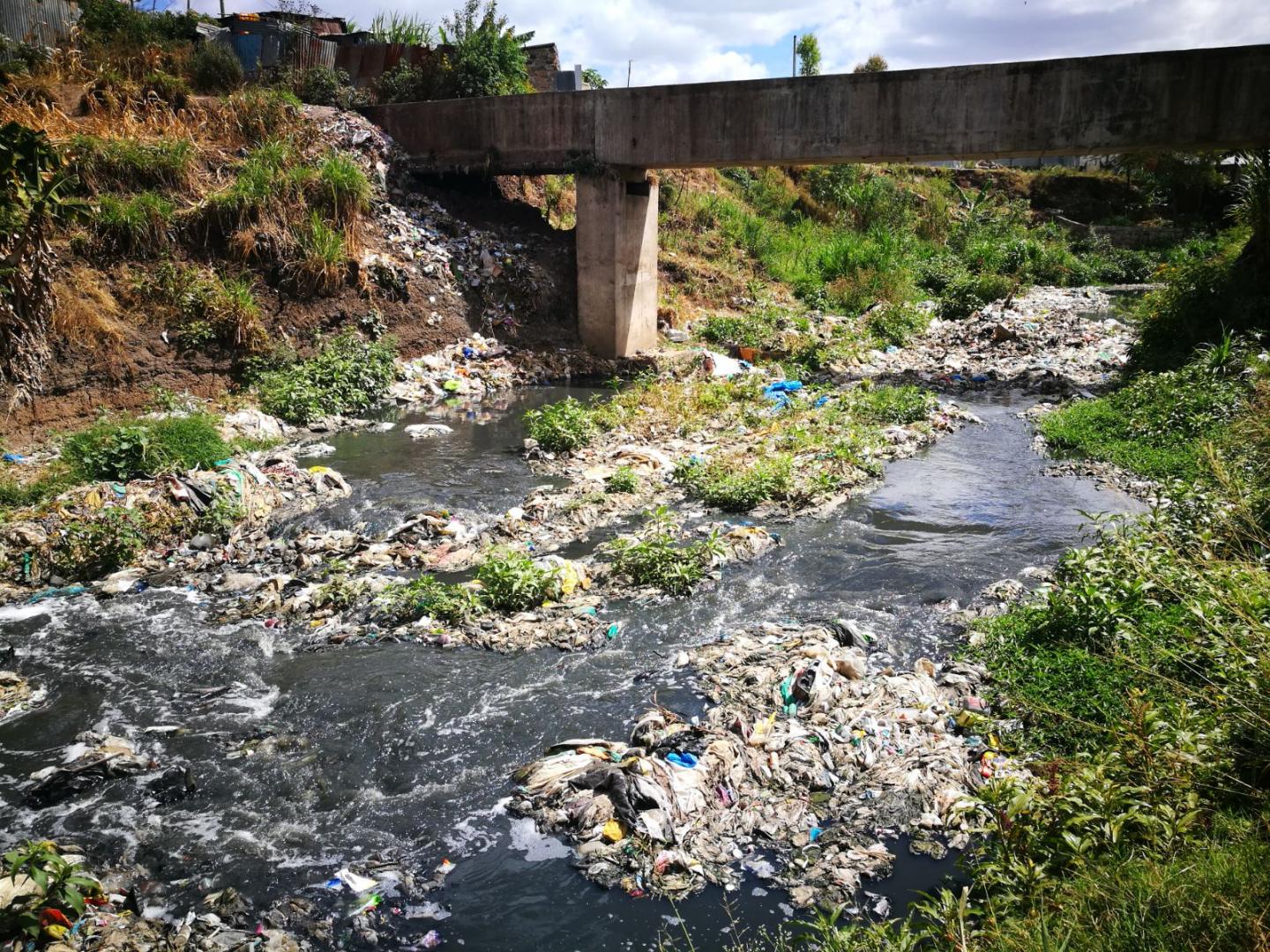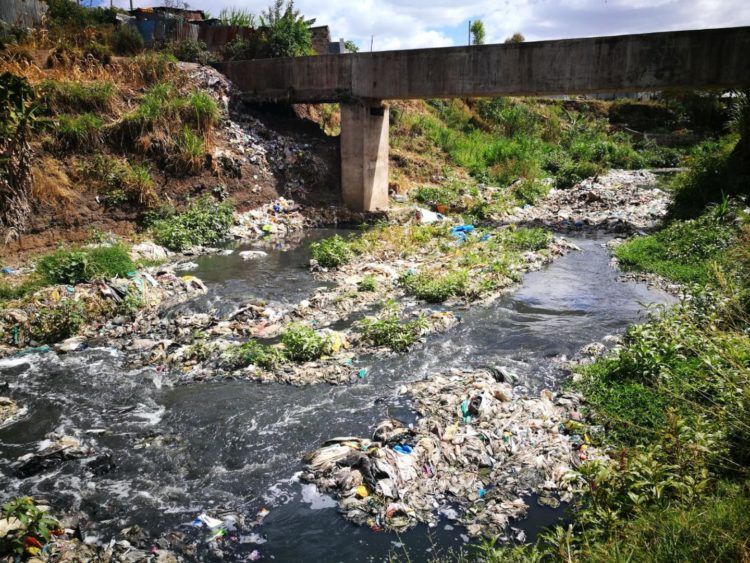
Credit: Dr. Simone Bagnis/University of Plymouth
Poor sanitation leads to untreated wastewater entering river systems in many countries where industrialisation and urbanisation is not supported by appropriate infrastructure. The lack of regulation and enforcement means toxic chemicals can damage the ecology of the natural environment and pose a risk to human health.
Responsible producers of active pharmaceutical ingredients (APIs) are growing increasingly concerned that current environmental risk assessment methods do not adequately reflect the sources and pathways of APIs to the rivers of developing countries.
Now, new research led by the University of Plymouth suggests that failure to ensure the environmental sustainability of growing patient access to medicines in developing economies could increase the risk of adverse environmental impacts.
Scientists took a series of samples from the Nairobi/Athi river basin in Kenya to assess the source, occurrence, magnitude and risk associated with a range of APIs and other chemicals.
They found elevated levels of drugs including paracetamol, caffeine, sulfamethoxazole and trimethoprim, up to 75km downstream from the urban centre of the city of Nairobi.
The primary sources were the direct discharge of untreated domestic wastewater from informal settlements, the industrial area of Nairobi where drug formulation is known to occur, a major landfill site and veterinary medicines from upstream agricultural use.
Scientists say the chemicals could pose a number of risks, the most prominent being the potential threat of anti-microbial resistance (AMR) with the river being used by communities as a source of drinking water and for the irrigation of crops.
And, while this research focused on the Nairobi area, they say its findings could be applied to anywhere in the world where the development of an urban area has outpaced the development of basic sanitation and the environmental infrastructure required to support its population.
The study, published in Science of The Total Environment, was led Dr Simone Bagnis (as part of his PhD studies) and Dr Sean Comber from the University of Plymouth.
Samples were collected in 27 locations along the river catchment and were analysed by collaborators at the University of York for the occurrence of 55 APIs, with 45 compounds under scrutiny being detected in at least one sampling location. The APIs with the highest frequency of detection were caffeine (stimulant), carbamazepine (antiepileptic), trimethoprim, sulfamethoxazole ciprofloxacin (antibiotics), fluconazole (antifungal) and amitriptyline (antidepressant).
Dr Comber, Associate Professor (Reader) in Environmental Chemistry and the paper’s corresponding author, said: “Nairobi is a massive sprawling city with large areas of unconstrained development, industrial areas, informal settlements and open landfill sites all polluting its river system. Its sewage treatment works were designed to cope with a population of around one million, but the city has quickly grown to at least four times that in recent decades. Extensive use of pit latrines within informal settlements means that untreated sewage either enters the environment directly, or leaches through groundwater. Sewage “exhauster” lorries often pump faeces out of the latrines and dump it directly into the river.
“Where that occurs, you would expect pharmaceuticals to be present, but the highest concentrations were over a thousand times greater than typically reported in, for example, UK rivers – with the antibiotics being of particular concern, given elevated levels extend so far downstream from the urban centre. As well as the environmental risk, this does pose the threat that bacteria develop a resistance to certain types of medication. And in locations where disease can spread at an alarming rate, that is obviously a major cause for concern.”
The study was conducted through a PhD studentship funded by AstraZeneca Global Sustainability, and also involved researchers from the University of York and Jomo Kenyatta University of Agriculture and Technology in Nairobi.
Professor Snape, Environmental Director within Global Sustainability at AstraZeneca and co-author of the paper, said: “As a sustainable organisation, our commitment to society, people and the planet lies at the heart of all that we do. Access to healthcare and environmental protection are two of our sustainability priorities and this research is part of a wider programme of work that we are partnering with, to help ensure that access to medicines does not compromise environmental protection.
“We have a specific focus on emerging economies where environmental infrastructure is minimal, water use and re-use patterns are different, and environmental regulations either do not exist or need to be revised to reflect the latest scientific consensus. We are committed to providing scientific leadership to help proactively manage the risks posed by pharmaceuticals in the environment. In addition to funding basic research to understand the issue, we are working with stakeholders across the industry, regulatory agencies, governments and inter-governmental organisations, to help mitigate the environmental risks posed with increasing access to healthcare.”
###
Media Contact
Alan Williams
[email protected]
44-175-258-8004
Original Source
https:/
Related Journal Article
http://dx.





